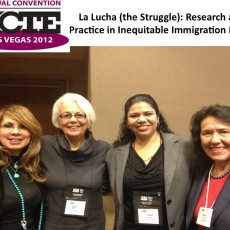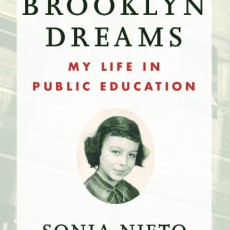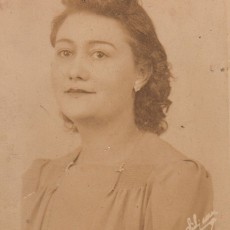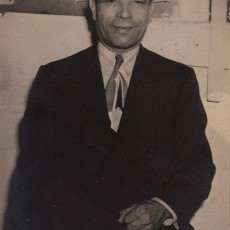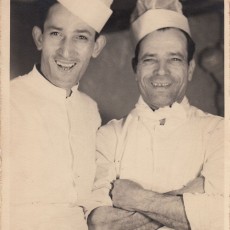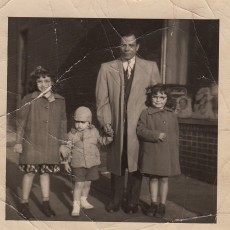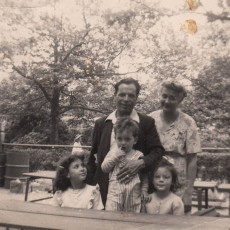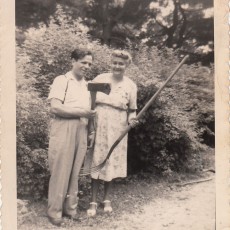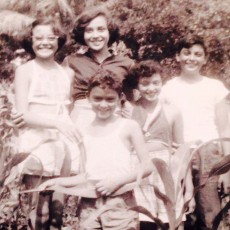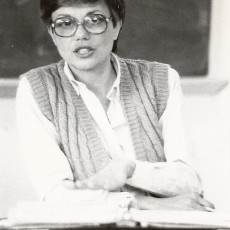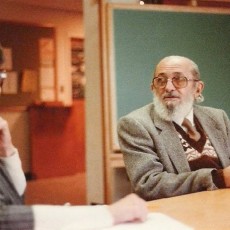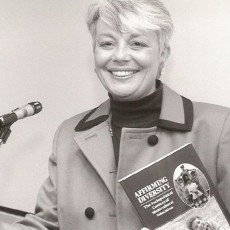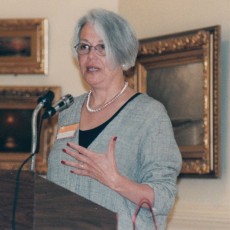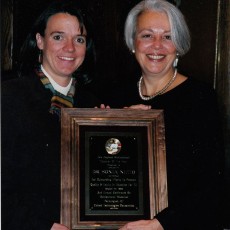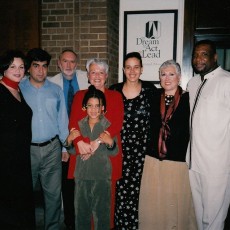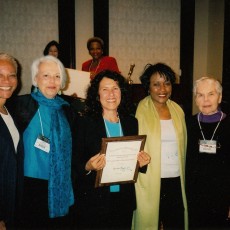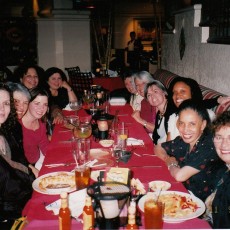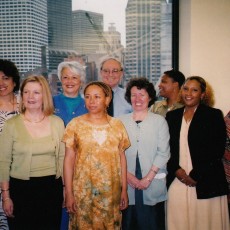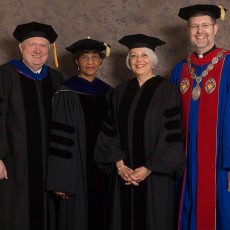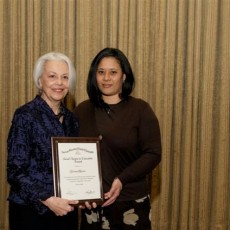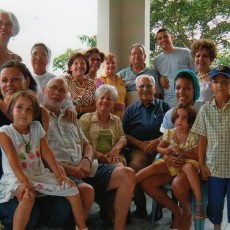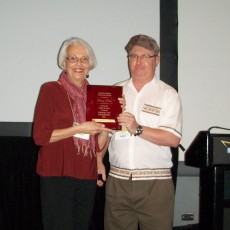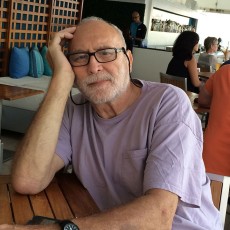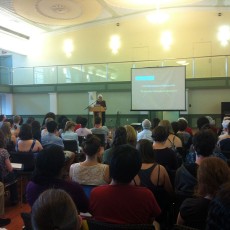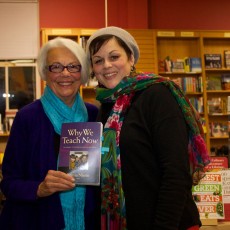Sonia Nieto
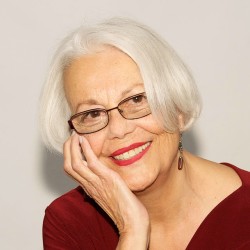
Sonia Nieto is Professor Emerita of Language, Literacy, and Culture in the School of Education at the University of Massachusetts (UMass), Amherst. Having regularly visited the Brooklyn Public Library as a child growing up in New York City, Nieto felt inspired to become a teacher, earning her bachelor’s degree in education with a minor in Spanish from St. John’s University (Brooklyn) and graduate degrees from New York University and UMass Amherst. In her early career, she served primarily Puerto Rican students as a bilingual/English Second Language teacher, and later a curriculum specialist at the first fully bilingual school in the Northeast. Her experiences reaffirmed her belief that multicultural education must transcend the curriculum and address the structure of inequality in schools for students of color. As a faculty member, educational researcher, and scholar, Nieto has dedicated more than 35 years to promoting equality and equity in educational opportunities through multicultural education that includes all types of differences. Lecturing widely in the United States and abroad, Nieto has received numbers awards and honors for teaching including recognition as the Multicultural Educator of the Year (1997, National Association for Multicultural Education) and Outstanding Language Arts Educator of the Year (2005, National Council of Teachers of English) as well as scholarship as a fellow of the Annenberg Institute (1998-2000), the American Educational Research Association (AERA; 2011), and the Learning Policy Institute (2015). Also honored for her advocacy and commitment to social justice issues as a recipient of the AERA Social Justice in Education Award (2008) and six honorary degrees, Nieto has authored or edited ten books and numerous other scholarly publications. Her book, Affirming Diversity: The Sociopolitical Context of Multicultural Education (now in its 6th edition), is among her most influential works and widely used in teacher preparation and in-service courses nationwide. Her other books include: The Light in Their Eyes: Creating Multicultural Learning Communities (1999/2010); Language, Culture, and Teaching (2002-2010); What Keeps Teachers Going? (2003); Finding Joy in Teaching Students of Diverse Backgrounds (2013); and Brooklyn Dreams: My Life in Public Education (2015). In her retirement, Nieto continues her work as an advocate for multicultural education, teacher preparation, and the education of Latinos/as and other culturally and linguistically diverse student populations.
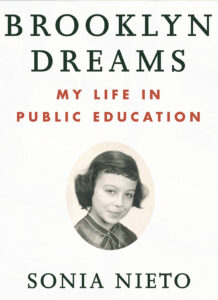
For more information, visit Sonia Nieto’s Website. To learn more about Sonia Nieto from her family and friends, visit her Reflections. To view photographs from Sonia Nieto’s personal collection, visit her Photo Gallery.
Curriculum Vitae Suggested readingsVisit the video below to watch a short overview of the interview with Sonia Nieto. Otherwise, see all five of the full interviews with Sonia Nieto below.
Video Interviews with Sonia Nieto:
Born and raised with her siblings in Brooklyn, New York, Dr. Sonia Nieto recalls how hard her parents worked as immigrants from Puerto Rico to buy and successfully run their own bodega (a small grocery store). Learning Spanish as her native language, Nieto notes that she “does not remember much about that first year [in school] except not having the words.” Noting that she attended public schools throughout her childhood, Nieto describes her excitement at the purchase of the family’s first home in a middle class neighborhood, adding that “her life changed because her family changed zip codes.” Nieto, a very good student who always liked school, had long known that she wanted to be a teacher, perhaps in part she explains because teachers were “the only professionals” she knew. Watch this clip to hear more from Dr. Nieto about why she decided at age ten that she would attend college and begin her career as a bilingual teacher given her commitment to equal and equitable opportunities for all students.
Having joined her older sister, Lydia, as a student at St. John’s University in Brooklyn, Dr. Sonia Nieto seized an opportunity to study in Spain after graduating with an undergraduate degree in education (and a minor in Spanish). Having met her husband Angel while aboard, Nieto explains that they married after a whirlwind courtship of only a few months. As a first-year teacher, she also poignantly describes feeling overwhelmed and doubtful that she would ever return to the classroom. However, her later experiences as a bilingual/English Second Language teacher, first for adults at the Spanish American Institute and then for 4th grade students at the first fully bilingual school in the Northeast, inspired her to apply for a position as an instructor in the Puerto Rican Studies Department at Brooklyn College. In this clip, learn more from Dr. Nieto about her experiences as one of very few female, Puerto Rican doctoral students, and the profound impact of her first course in multicultural education on her future work as a scholar.
Cherishing the opportunity to travel across the state and work with parents, Dr. Sonia Nieto recalls her invaluable experience at the Bureau of Equal Educational Opportunity in the Massachusetts Department of Education. The opportunity to join the faculty at the University of Massachusetts, Amherst further enabled Nieto to share her passion for teaching with future educators. Explaining that reforms intended to support traditionally under-served students are very often beneficial for all students, Nieto describes her initial surprise at the widespread popularity and profound influence of her first book, Affirming Diversity: The Sociopolitical Context of Multicultural Education. Watch this clip to also learn from Dr. Nieto about her impressions on the impact of standardized testing on student learning and the critical loss of teachers who leave the profession too soon.
As the daughter of Puerto Rican immigrants, Dr. Sonia Nieto describes her passion for writing about the experiences of Puerto Rican students in American schools. At a time when there were few Puerto Rican scholars in the academy, she explains her commitment to providing resources to teachers that she wished had been available when she taught in the classroom. Recalling a long-ago conversation with a student who had not previously encountered her work, Nieto adds that she continued to write in part “to prove that Puerto Ricans can write books.” Although she has been retired for nearly a decade, Nieto remains excited and motivated to engage in the field. In this clip, share with Dr. Nieto her dedication to preparing teachers “for the kids who will be in their classrooms today.”
When asked to reflect on her research and scholarship, Dr. Sonia Nieto describes her accomplishments with humility, explaining that she hopes she has “led teachers and students to think about education differently.” Adding that there is still more work to do, whereas Nieto firmly believes in the profound opportunities teachers have to impact their students-after all, there is “nothing like a really great teacher.” Influenced in her own life by her husband Angel and family, she also credits teachers, colleagues, and scholars who have helped shape her work over the years. As a self-ascribed learning junkie, she remains inspired by the highest-needs students and their teachers. In this clip, hear more from Dr. Nieto about her hope for the future and advice for graduate students and young scholars who (also) want to make a difference.
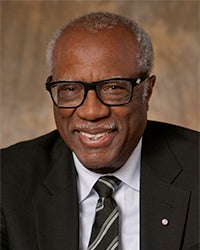
Dr. James Banks
Describing Dr. Sonia Nieto as “a highly valued and respected friend and professional colleague,” Dr. James Banks first approached her to request that she prepare a prepublication review of a chapter on Puerto Ricans in the United States in his book, Teaching Strategies for Ethnic Studies (first published in 1975 and now in its 8th edition). Jim notes that her 17-page external review of the chapter was “extensive, engagingly written, and enormously helpful”-he was very impressed by her “diligence, attention to detail, and incisive mind.” Also recalling a memorable conversation with her over coffee at an annual American Educational Research Association (AERA) conference during which he encouraged her to write a multicultural education textbook, Jim describes Sonia’s initial hesitation and insistence that another book in addition to his own was not needed in the field at the time. Needless to say, he affirms the important contribution her book (written a few years later) as “one of the seminal and most widely used textbooks in the field of multicultural education, Affirming Diversity: The Sociopolitical Context of Multicultural Education” (1992, now in its 6th Edition [co-authored with Patty Bode]). Jim notes that “in addition to being a scholar of first-rank, Sonia has a strong commitment, unique experiences, and extensive knowledge about educating students from diverse racial, ethnic, cultural, and linguistic groups.” He explains that she “has made and continues to make original, pivotal, and incisive theoretical and research contributions to research, policy, and practice.” Characterizing Sonia as “a brilliant, compassionate, original, and diligent scholar who is strongly committed to social justice and educational equity,” Jim summarizes the “influence of her work in the United States and nations around the world [as] enormous and pathbreaking.”
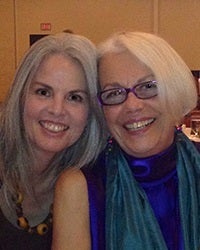
Dr. Patty Bode
Dr. Patty Bode describes her mentor, long-time friend, and co-author, Dr. Sonia Nieto, as an “enduring influence on [her] life as an educator, in addition to being a lifelong, loyal, and steadfast friend.” Patty adds that Sonia has been her “academic advisor and guiding mentor intellectually, professionally, and personally” and that becoming her co-author on Affirming Diversity: The Sociopolitical Context of Multicultural Education has been “one of the greatest honors [she has] experienced.” Characterizing Sonia as “courageously determined,” Patty notes that her “tenacious commitment is evident in her determination to ensure equitable public education for all children-especially those whose educational journeys have been impeded by institutional racism, [who] are dedicated to maintaining their home languages while learning English, and [who] have been marginalized by social structures.” Furthermore, Patty cites the “fierce hopefulness that Sonia infuses into the lives of teachers” as one of her most significant accomplishments. She notes that throughout all of Sonia’s writing, she “leads teachers to maintain hope against a backdrop of political struggles and social strife in public schools.” “[B]y urging teachers to preserve the ideals of public schools as a site for full participation in a democratic society while transforming teaching to meet the needs of some of our most vulnerable children, [Sonia] sustains teaching as a political and optimistic endeavor.”
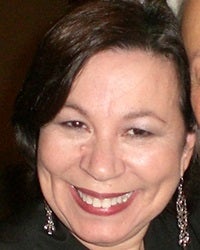
Dr. Anaida Colon-Muniz
Dr. Sonia Nieto’s former student and long-time friend, Dr. Anaida Colon-Muniz, describes her greatest accomplishment as “giving voice to the students and teachers…not speaking for them, but using her ‘in’ with the academy to allow others to hear the voices of the most marginalized students and the most critical teachers-multicultural, bilingual, elementary, secondary, special education, alternative programs…you name it.” Anaida notes that Sonia “has given a perspective or lens from which to recognize and affirm difference in the United States.” Describing her close friendship with Sonia of more than 35 years, Anaida explains that “through the good times and bad, nurturing their children, and caring for their elders, watching their kids grow, loving their spouses, having sisters-they have shared it all.” Noting that “tears come to her eyes” as she writes about Sonia because she has “used her gifts of writing beautifully and clearly to be able to capture the experiences of those whose voices are typically silenced, whether because they are entrenched in an educational system that represses their voices, or because sociocultural and economic conditions have robbed them of the opportunity to stake their claim to any sort of privilege to be heard.” She notes that her friend is a student of Paulo Freire, “who was always concerned with the most oppressed peoples,” and that she has been “true to that philosophy of education as a path towards personal freedom and agency to help create a better, more just and humane world.” Anaida adds that Sonia “put into the hands of teachers and teacher educators, as well as school administrators and faculty, realistic tools for how to approach the changes that are needed to move us into a public education that truly serves the needs of our millions of students from all backgrounds and who live in every sort of American reality, from rural to urban, rich to poor, black to white.” She explains that the “sanity and sustenance of our nation is at the center, and that Sonia is working hard to prepare us to do the work that needs to be done.” Characterizing Sonia as a “real live rock star,” Anaida notes that “she signs autographs and takes pictures just like someone from Hollywood!” Even though Sonia is “more famous than most people, the best part is how she always greets, always hugs, never shuns anyone, and always tries to make an effort to connect with people, help them, mentor and support them…especially young scholars.”
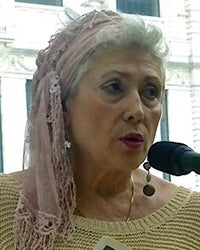
Lydia Cortés
Lydia Cortés shares humorous stories about growing up with her younger sister, Dr. Sonia Nieto, in Brooklyn, recalling that Sonia kept her side of the room impeccably clean and was usually the teacher’s pet. She explains that their parents came to New York City from Puerto Rico and notes that although Sonia liked school, it was difficult “to start school speaking Spanish alone and having to learn English without ESL [English as a Second Language support] or bilingual classes since there weren’t any.” Lydia also describes the significance of Sonia earning a doctoral degree as “an achievement for her as an individual as well as for their proud family… especially since their father had only been able to stay in school until 4th grade because of family obligations; their mother stayed in school until graduation from junior high school.” Lydia adds that “besides being very intelligent, friendly, sympathetic, generous and kind, even as a child, [Sonia] has always had the determination to be involved completely with anything she undertakes to resolve.” Lydia notes that Sonia’s colleagues are “frequently amazed at her output, the number of publications she continues to produce, the numerous presentations given continuously nation-wide and even in different parts of the world, [and] the mentees she still takes on and supports.” Lydia captures her sister’s essence starting with the word family, noting that her “family has always been a key focal point in all her endeavors and achievements. When family members are in the audience at one of her presentations, in fact, she never fails to proudly recognize [them].” Lydia is very proud of her sister, as noted, ultimately describing her as “loving, caring, kind, generous, smart-brilliant[ly] smart-patient, untiring, problem solving and beautiful.”
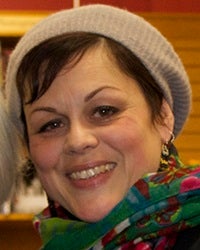
Alicia Lopez
Describing her mother, Dr. Sonia Nieto, as “her best friend,” Alicia Lopez explains that she “always has her back and is her biggest fan.” “Even though [they] still have the mom/daughter dynamic,” Alicia can “tell her anything” without fear of judgment. Alicia describes her mother as “her role model,” considering “with just about everything-would she approve, be proud?” Noting that “most people know [her] mother as down-to-earth and extremely accessible, which she is with the public always,” Alicia adds that “she has a princess-y side,” which includes not pumping her own gas, and she “is a clothes hound, never missing an Eileen Fisher sale.” She also cites her mother’s most significant personal and professional achievements, explaining that “Papi and Mami, [her] grandparents, would be so proud to know that their ‘Sonita’ had affected and inspired so many educators, and that she had influenced multicultural education in the way that she has.” Alicia adds that “she has come a long way from Williamsburg, Brooklyn, but she has never forgotten her roots and continues to be proud of them-which also inspires many people.” Alicia describes her mother as the “most generous person [she] knows (aside from [her] dad)” and explains that she “is generous [not only] with her resources, but also with her time. She will take anyone out for coffee or lunch who wants her advice, and she has mentored hundreds of educators.” She adds that her mother has been “generous over and over again with her family, giving of her time and energy” to her children and grandchildren, and that she is “kind, but strong about her beliefs. She is also generous and accessible to so many people in her personality and in her scholarly work.” Although she is Dr. Nieto, Alicia knows that she prefers “Sonia.”
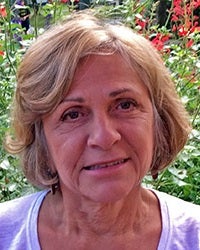
Dr. Maddie Marquez
Characterizing her friend of more than four decades, Dr. Sonia Nieto, as “a highly intelligent, articulate, and respected educator,” Dr. Maddie Marquez explains that Sonia “offers ideas about equity, social justice, and democracy that some may find unfamiliar, challenging, and even provocative.” Maddie notes that Sonia strives to “ensure that the historically voiceless are heard clearly in our national dialogue about today’s meaning of ‘a more perfect union,’ and to make more readily accessible and acceptable the centrality of equity in education.” Adding that it is “challenging to live one’s principles,” Maddie describes Sonia’s commitment, actions, and optimism-her “life exemplifies those foundational principles about which she so often speaks and writes.” While acting “in support of a more just society,” Maddie notes that Sonia “preserv[es] her curiosity about and enthusiasm for all that life has to offer-never becoming disillusioned or doubtful about the future” and counts among her “vast network of friends and colleagues to whom she offers her warm smile and warm embrace individuals from a variety of communities, cultures, social classes, and viewpoints.” Explaining that Sonia and her husband and partner, Angel, treat “each [friend and colleague] like an esteemed guest in their home,” Maddie shares her appreciation of the “vast reservoir of traditional Puerto Rican generosity, enthusiastic welcome and plates of food…[that await] the many who push open their beautiful front door,” adding that the fare now includes 21st century vegetarian options too. Although Sonia’s “circumstances many have changed over time,” Maddie notes that the “centrality of family and friends remains unaltered” in her life. Friendship for “those lucky enough to be close to [Sonia]…has meant bold actions followed by dinner parties; national conferences that include bargain hunting and other such agreeable and gratifying activities; as well as being engaged in actions meant to give others sustaining hope and encouraging support.” “For these reasons and more,” Maddie explains that Sonia “remains [her] dearest friend.”
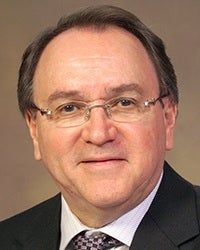
Dr. Luis Moll
Dr. Luis Moll describes his long-time friend and colleague, Dr. Sonia Nieto as “Sonia, La Elegante (the elegant one) [because she] always looks like a million bucks,” adding that “along with that elegance is a kind and wonderful person with a strong and staunch, if not fierce, commitment to educational equity for students, especially the poor.” Noting that he speaks with Sonia primarily in Spanish as he is also from Puerto Rico (San Juan), Luis recalls once asking where she is from in Puerto Rico, and that she answered laughing, “de Brooklyn.” His response: “That will do.” He adds that he always greets her at conferences with “Cómo estás, mama” (“How you doing, mama?”). Luis describes his friend’s most significant accomplishments as her “advocacy for and support of teachers, and her dynamic and passionate views of teaching, especially in terms of developing a culturally relevant and intellectual potent pedagogy for students.”

Angel Nieto Romero
Explaining that although many recognize his wife, Dr. Sonia Nieto, nationally and internationally “for her work as a teacher, lecturer, and author” and that they “know her books and her prizes and achievements,” Angel Nieto Romero notes that not many people know her as “a private person, a wife, a mother, a grandmother, and an involved member of her community,” [adding] that he would like to write “a little about those other accomplishments.” Recalling their first meeting 50 years ago while Sonia was studying for her master’s degree in Madrid, Angel explains that “the moment [he] saw her on a train going from Madrid to Cuenca ([his] home town), he fell in love with her.” He adds that “this love continues today stronger than ever,” writing that “Sonia has made [him] very happy and [he] hopes she loves [him] in the same way.” “With a wonderful ‘joie de vivre,’ Sonia always has a smile on her face and she enlivens a room as soon as she enters,” Angel explains, noting that “even on the street, other women stop to tell her that she is beautiful and elegant.” Characterizing her as “a wonderful wife, mother and grandmother to their 12 grandchildren,” he explains that “everyone counts on her to help solve problems or [they] ask for help, and she always comes through.” She is “very loving of her family, generous, and thoughtful. She knows the personality of each of their daughters and grandchildren very well.” Angel also describes her as “intelligent, smart, and knowledgeable,” adding that “you cannot run out of things to talk [about] with her.” Also dedicated to staying fit, Sonia “walks every day at least two miles, does yoga and Zumba, and loves to dance to Latin music”-she is “an excellent dancer.” Also fun-loving and “open to anything that has to do with art and music,” Sonia enjoys spending time “with friends or family, going to restaurants, the ballet, concerts, and the theater.” In addition to her “dedication to her family, the profession, and the community,” Angel cites her commitment to “social justice, antiracism, and community involvement” and to her students as among her many admirable traits. Angel captures the essence of Sonia, explaining that “she is [his] ‘compañera,’ friend, and the love of [his] life.” As a former teacher and as the father of a current teacher, Angel honors the work that teachers do, as is evident in this poem he wrote.
SER MAESTRO/TO BE A TEACHER
To be a teacher means
To stimulate, to encourage, to be humble,
to reprimand.
To repeat, to correct, to instill pride,
to require.
To fulfill, to impose, to laugh,
to admire.
To imagine, to mold, to care,
to demand.
To persist, to struggle, todare,
to understand
To make rules and to break them,
to mistrust the obvious
to reject the comfortable
to escape routine.
To answer and to ask,
always to ask,
not paying attention
to what people might say.
To sleep a little and dream a lot,
to dream asleep,
and dream awake,
always to dream and
reach for the impossible.
To learn, to share, to teach
and to learn again.
To discover, to shape, to achieve
and then start all over again.
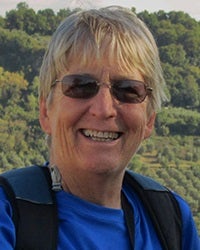
Dr. Patty Ramsey
Ode to Sonia Nieto on the Occasion of her Retirement from the University of Massachusetts, June 3, 2006
Preface: To honor Sonia on this august occasion, I wanted to write a poem for her – but quickly realized that not many words rhymed with “Sonia.” Well, there is one: “begonia” – hmm – a nice flower, but we all know that “Sonia is no begonia” – an iris perhaps or a willow tree but definitely not a begonia. So this poetic endeavor called for much improvisation and resulting rhymes are – well– excruciating at times, but that is sort of the point.
This ode is to you, my dear friend Sonia
In honor of the 30 – or more — years that I’ve known ‘ya.
We first met in Bob Suzuki’s class
Both brand new grad students at UMASS.
But who would have thought that fateful year
That after 3 decades you’d STILL be here.
But, though you’ve stayed in one place, you’ve traveled far
From lowly grad student to faculty star!
How did this all happen, one might ask.
Well, explaining it all is no easy task.
But I do remember one pivotal moment
When perhaps all of this began to foment.
We were eating at Atkins, and you gave me a look,
And said, “You know, I think I’d like to write a book.”
“What a great idea!” I said with glee.
And the rest – as they say – is histor-ee.
After months of writing and editing and much stress
Affirming Diversity finally went to press.
And the minute it was published – it took off like a shot
And suddenly, my dear Sonia, you were “hot!”
Editors from all over began jostling and fighting
Trying to get you to do more and more writing,
“Please write us a book, or at least a chapter!”
And while each piece was received with great cheers and rapture,
Those greedy editors kept calling for more
While unfinished manuscripts piled up on your floor!
And sometimes you felt that your brain was fried!
But, as you always do, you took it in stride
And with fingers flying on those computer keys,
You met the deadlines with grace – if not ease!
When invitations to speak began to pour in
We all knew your career was really soarin’.
At colleges and schools all over the land
Your lectures and keynotes were in great demand.
In fact there was a rumor that you got a call
To give a talk on…American I-dol!
And you were asked to sit on many boards
And received a number of dazzling awards.
And just recently you were voted Queen for a Day
At the annual meeting of A-E-R-A!
Now everyone agrees that you’re a great teacher and writer
And for progressive causes you’re a real fighter.
And of course you’re committed and idealistic.
But just for a moment…let’s be realistic.
We all know that social justice is not your only passion
There is the small matter of your — love of fashion?
In fact they say that “Wherever Sonia goes
Follow her to find the best sales for clothes!”
I’ve even heard talk — I can’t recall where
About giving you the endowed Eileen Fisher chair.
And there’s a store in Amherst – the name starts with a Z
When they see you coming – they shout “Yippee!!”
Now I truly do admire your skills as a dresser
But there’s one little thing that I need to confess here.
Sometimes your elegance puts me down in the dumps
Because next to you – we ALL look like frumps!
Well, Sonia, you’ve had a brilliant career
You definitely have hit the stratosphere.
And now you’re retired you can take to your wings
And go on to do even greater things!
But wait! There’s a problem ’cause YOU want to slow down
And how to do THAT and still get around
To all the events and meet the demands
Of your thousands of ever-adoring fans?
So here’s an idea that I’ve thought about, Sonia,
We just find someone who’s able to — clone ya’.
So then you can give speeches all over the place
But no longer have to rush and race
To write the talks and deliver them too.
And we would all get to see MORE of YOU.
And you’d never have to leave your favorite seat
At Judie’s on North Pleasant Street!
So enjoy on your retirement, my dear friend,
May your career – and your happiness – never end!
Love,
Patty
